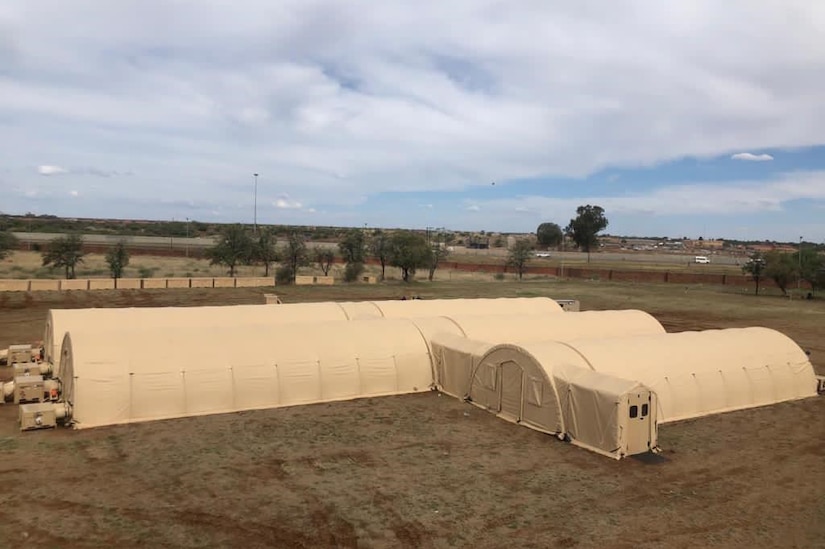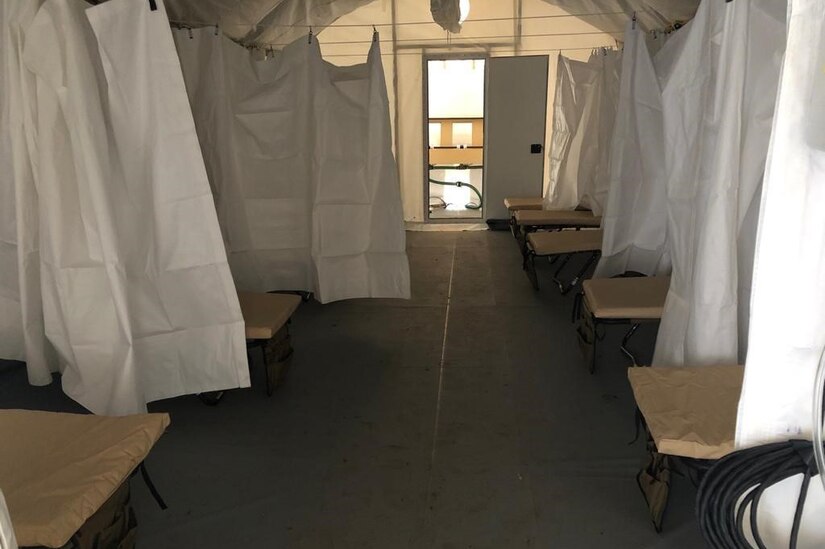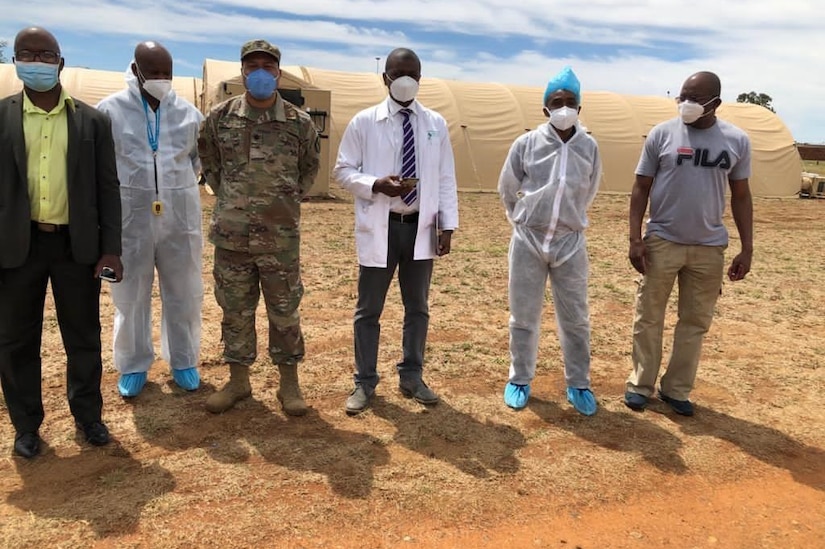Nov. 18, 2020 | , New York National Guard
The hospital was purchased by U.S. Africa Command through the command's Humanitarian Assistance Program, and transferred to South African officials by personnel from the U.S. Embassy in Pretoria, South Africa.

Mahikeng, previously known as Mafikeng, was chosen as the location for the hospital by Dr. Zweli Mkhize, South Africa's health minister, because of an increase in COVID-19 cases in the province in recent weeks.
"The donation of this field hospital is timely given that our scientists are anticipating a possible second wave of COVID-19 infections in February," Jeanette R. Hunter, the deputy director general for primary health care at the South African National Department of Health, said.
As of Nov. 5, 2020, the Mahikeng Provincial Hospital had only four negative pressure isolation beds to treat 28 COVID-19 patients.
Negative pressure beds are maintained in rooms isolated from the rest of a facility. The air pressure inside these rooms is maintained at a lower level. This keeps air — which could be contaminated — from flowing out when a door is opened.
In order to ensure there were enough beds to treat COVID-19 patients, 90 beds that were used for other purposes were shifted to accommodate. This restricted the hospital's ability to treat patients without COVID-19, Hunter said.
The new field hospital has 40 beds isolated by negative pressure, which will increase the hospital's capacity for more patients.

The hospital was manufactured by Alaska Structures, an Anchorage company that specializes in engineering fabric buildings. Two 2,300 kilowatt generators provide power, and the system includes toilets, showers and a limited reception area.
The hospital can operate autonomously and is equipped with eight air conditioning units equipped with high efficiency particulate air filtration and ultraviolet light scrubber systems to control infections.
"The fight against COVID-19 in South Africa is not over, and that's why this state-of-the-art field hospital donation from the American people, through Africom, is especially timely," U.S. Ambassador Lana J. Marks said.
"We once again commend the South African government and Minister Mkhize, who personally chose Mahikeng as the location for this facility, on their response to the pandemic, which the United States government has been honored to support," Marks added.
The field hospital was set up during the latter portion of October and transferred to the South African government during a ribbon-cutting ceremony on Oct. 26.
Africom sent a team of civilian trainers to assist South African medical and support teams selected to run the mobile hospital on its assembly, set up, facilitation, transportation and storage.
Africom's support to the COVID-19 response and mitigation efforts began in late March, early April, as the first signs of COVID-19 infections emerged.

Africom has purchased seven 40-bed and seven 30-bed negative pressure isolation hospitals for African partners.
The military's Humanitarian Assistance Program, or HAP, helps partner nations build their disaster readiness, response and mitigation capabilities. The program funds infrastructure, equipment and training to help nations prepare before disasters and crises strike, but also supports countries who request assistance from the U.S. government when they experience health and weather-related emergencies.
COVID-19 assistance projects are funded under HAP to support requests from partner nations for supplies and equipment needed to respond to the virus outbreak, treat infected patients and prevent additional exposure. The U.S. Department of State and U.S. Agency for International Development review the projects and concur with their proposed assistance before they are approved, according to embassy officials.








No comments:
Post a Comment